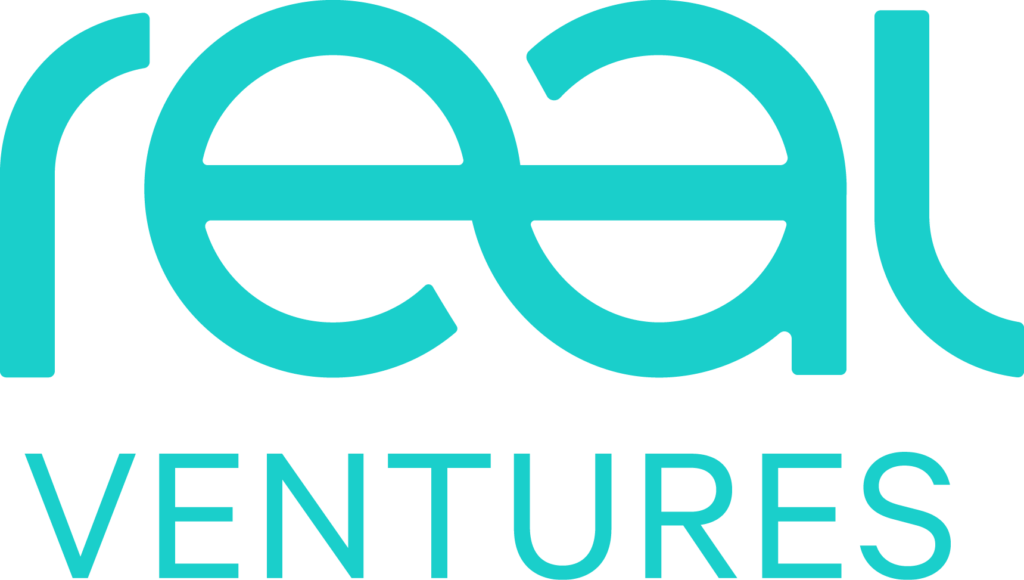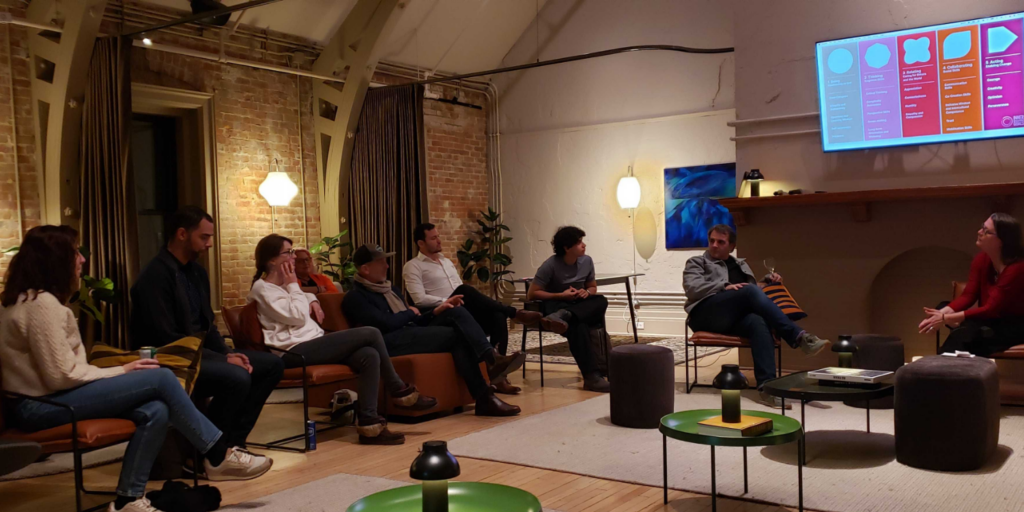This is the first of a series of posts aimed to provide an insider perspective on all aspects of Canada’s AI ecosystem, with a particular focus on Montreal and Toronto — two of Canada’s most active AI cities.
There’s no question that Canadian AI is booming. But what makes the Canadian major cities such exceptional hubs of research and startup activity?
After digging into the history of key AI actors and institutes in Montreal, the relationships among them and their impact on local entrepreneurs and the growth of the community, we found that Montreal’s AI story has three parts, all of which have positive network effects for startups and corporations working in AI:
- Research roots and a collaborative model
- An AI research network that has drawn global interest and talent
- Local and global supporters
Montreal’s non-predatory model
The major difference between Montreal and many other technology hubs is the atmosphere of fellowship and the belief that scientific progress should be for everyone. This foundation of knowledge sharing — forged by some of the most prominent AI researchers in the world — has led to to a convergence of AI talent and research support, as well as the establishment of AI research labs, both academic and corporate, in the city.
Montreal is rooted in its research
La Belle Ville has research roots that extend across the globe. Many top AI researchers have engaged with academic programs in the city and some, including Hugo Larochelle of Google Brain, have left and then returned to Montreal to grow privately-funded AI labs. With corporations anxiously recruiting the less than 22,000 people in the world who have the skill-set to tackle tough AI problems—often through astronomic salaries —there is now an even greater need for top researchers to train next generation talent.
This is Montreal’s strength, thanks to a conglomerate of great minds brought together by Yoshua Bengio. Professor Bengio is a Canadian computer scientist, AI pioneer, and part of the “Deep Learning Conspiracy.” Decades ago, when deep learning theories about neural network operations failed to meet practical applications, financial support froze and the research fell into an AI winter. While most researchers waited for computing power and data to ramp-up, computer scientists, Geoffrey Hinton, Yann LeCun and Yoshua Bengio, kept the fire going. As data became the new currency and AI scaled, Hinton and LeCun were recruited to work with Google and Facebook, respectively.
Yoshua Bengio, however, remained committed to academia and the training of the next generation of senior experts in deep learning. The non-predatory model his team created at the Montreal’s Institute for Learning Algorithms (MILA) and more recently through the co-founding of Element AI, is keeping major research talent in universities rather than siloed in big corporations, all the while facilitating the commercialization of AI knowledge via collaboration with startups and enterprises. Bengio’s dedication to research through his investment in developing programs at Université de Montréal, MILA, through Element AI, and other research institutes, has also shone a bright light on Montreal’s AI Ecosystem and led to a significant number of prominent tech companies establishing their AI presence in Montreal.
Montreal’s magnetic AI research network
While Bengio may be Montreal’s AI pioneer, it’s the research institutes and critical mass of AI intelligence workers that have drawn in the interest of corporations and startups looking to harness this cutting-edge technology.
In 2016, machine learning researchers, largely from Université de Montréal and McGill University, established Montreal’s Institute for Learning Algorithms (MILA), an institute that facilitates and democratizes access to talent and research for applied AI in the business sector. MILA attracts top post-doctoral and PhD talent from all over the world and is building the next generation of AI researchers. Organizations can gain access to technical and business advisory services related to R&D — including those provided by MILA — through the Canadian National Research Council’s Industrial Research Assistant Program (IRAP), which is committed to helping Canadian firms build competitive advantages.
MILA’s expertise and programs are complemented by other publicly and privately-funded institutes:
The Computer Research Institute of Montreal (CRIM) has served Quebec enterprises by acting as a bridge between university research and business needs since 1985 and has collaborated on AI projects for nearly 30 years. Researchers at CRIM execute projects similar to MILA but on a smaller scale. Entrepreneurs and enterprises can access CRIM resources through a membership model, which opens up a large network of IT companies, as well as subject-matter expertise and innovation partnerships.
IVADO, Montreal’s Institute for Data Valorization, fills the supply/demand gap faced by CRIM and MILA by democratizing and raising awareness of machine learning and operations knowledge through membership programs. Since 2015, this partnership between Université de Montréal, HEC Montréal and Polytechnique Montréal has curated an innovation network of more than seventy partners including major Montreal players in transportation, energy, commerce and healthcare. As members of IVADO, entrepreneurs and enterprises join a platform for knowledge exchange and collaboration between the specialists, partners, researchers and students in its network.

In the past two years, there has also been a major influx of privately-funded AI research labs to Montreal, driven by the convergence of talent and proximity to key resources for information exchange and collaboration. This concentration of expertise helps reinforce developments in AI applications and grow new AI-focused businesses.
Among the most notable are:
- Element AI, co-founded in 2016 by Jean-Francois Gagne and Yoshua Bengio. The team has quickly grown to 300 employees over the past two years and is the largest privately-owned Canadian AI R&D lab.
- Microsoft acquired Montreal AI lab, Maluuba, in early 2017 with plans to double technical experts to 75 over the next two years.
- Samsung Electronics’ Advanced Institute of Technology (SAIT) opened an AI lab in the Université de Montréal in August 2017. SAIT has been collaborating with Bengio and other partners from the University of Toronto, McGill University and NYU since 2014.
- Google Brain recruited former student of Bengio and Montreal native, Hugo Larochelle, in mid-2017, to run their AI research in Montreal.
- Facebook established FAIR Montreal in late 2017 and hired Joelle Pineau (a McGill University Professor of Computer Science) to head this lab. FAIR is hiring 10 researchers initially and plans to triple in size by the end of 2018.
- DeepMind, acquired by Google in 2014, announced the opening of a research lab in Oct 2017 headed by Doina Precup (McGill University Professor of Computer Science).
- Thales SA, announced plans to open a lab in Montreal in October 2017. They are currently members of IVADO and plan to partner with MILA. By mid-2019, they hope to expand to 50 AI scientists.
- The Royal Bank of Canada will open a Borealis AI lab in 2018. They aim to have ten researchers on staff in the first year.
These corporations were drawn to Montreal by the expertise of the city’s researchers, yet many of the labs are being led by academics like Bengio, Precup and Pineau, who will continue to teach at their respective universities, while overseeing the application of their research for business purposes. Further, because of the prominence of these researchers — and importance of their labs’ developments — there has been a major injection of financial support into university research centres by both government and multinational players.
Major support for a flourishing AI ecosystem
The Canadian and Quebec governments, as well as international corporations, are playing a crucial role in both funding Montreal research organizations and in the recruitment and retention of talent in Canada. There is no question that global AI leadership is a national priority. In the past two years, Quebec has received significant funding that has enabled the province to reinforce and build infrastructure to better serve local AI initiatives and attract and retain AI researchers, entrepreneurs and research labs.
This support comes from two major sources: government (federal, provincial and municipal) and multinational (corporate and philanthropic) funds.
Government support:
In September 2016, the Canada First Research Excellence Fund allocated:
- $84 million to McGill University for their Healthy Brains for Healthy Lives (HBHL) initiative
- $93.5 million to Université de Montréal for Optimization of Deep Learning and Knowledge sharing (IVADO)
In March 2017, $40 million was allocated to Montreal from the Government of Canada’s $125M Pan-Canadian AI Strategy, administered by the Canadian Institute for Advanced Research (CIFAR).
In spring 2017, $100 million was allocated by the Government of Quebec for the creation of a provincial wide cluster and institute for Artificial Intelligence.
In March 2018, the Government of Quebec communicated the grant of:
- $5 million toward the establishment of an international organization on artificial intelligence
- $10 million toward NEXT.AI and CDL, initiatives of HEC Montreal, over the next five years
Corporate and Multinational funds:
- In 2016, Google announced it would give $3.33 million USD over three years to the MILA
- In early 2017: Microsoft contributed $7 million USD to McGill University and Université de Montréal AI Labs
- In August 2017: MILA was awarded $2.4 million USD research grant from the US-based Open Philanthropy Project, to make AI safer for society
As this financial support has rolled in, the City of Montreal is working hard to build infrastructure to serve local AI startups and research labs, with Montreal International, the city’s economic development agency for foreign investment leading efforts to attract more AI talent and corporate investment, and Montreal’s Chambre de Commerce (CCMM) driving thought leadership and local engagement via Quebec’s biggest AI forum of the year.
Montreal’s critical mass in AI: a win for the ecosystem
The investment into AI research and infrastructure is fuelling the AI fire in Montreal. For major corporations, this means access to a much larger pool of talent and the latest cutting edge research. For startups building AI-first companies, the cost of living and quality of life in Montreal means that more researchers will be interested in joining teams that can’t pay astronomical salaries (yet!), and they can also benefit from the latest cutting-edge research through MILA, IVADO and the other institutes.
As Montreal’s talent attracts international attention and investment in Montreal labs, more AI talent is drawn to the city and facilitates knowledge sharing of AI developments. This positive feedback loop of talent attracting talent and developments driving knowledge sharing, has and will continue to drive growth in Montreal’s thriving AI ecosystem.
All of this together paints a clear picture: Montreal is a city to watch, or move to, for those interested or working in cutting-edge artificial intelligence. The open nature and organic fellowship that defines Montreal’s entrepreneurial communities are proof that the city’s non-predatorial model works. The AI community goes further together, rather than faster alone.
2018 Snapshot

In next posts in this series, we will dive into the Toronto AI ecosystem and then zoom out to look at the broader Canadian AI landscape, what startups are doing and how Canada’s major AI hubs compare internationally.
**********
For more on our thoughts about how to scale your startup, sign up for our newsletter and follow us on Twitter, LinkedIn, and Facebook.




